When the New York Times asked “Who’s in the Corner Office?” for an article on top CEOs, it found one of the answers was “UW alumni.” The UW has six alumni who are currently CEOs of Fortune 1000 corporations. According to the Times, that’s more than any other public university in the nation except the University of Texas and the University of Wisconsin. These Husky CEOs are leaders in energy, airlines, retail, financial services and forest products. While several are alumni of the UW Business School, they also come from engineering and law. To find out more about their achievements, Columns asked business writer Brad Broberg to write brief profiles of the six. Here’s what he discovered.
The sky’s the limit
William Ayer, ’78, Alaska Air Group
The first airline Bill Ayer ran didn’t stay airborne very long.
“We operated for two years,” he says. “We didn’t go broke, but we probably would have if we’d stuck with it.”
While Air Olympia vanished from the radar screen quickly, its founder didn’t. After joining Horizon Air in 1982, Ayer (pictured at top) steadily ascended the corporate ladder at the Alaska Air Group, the parent company of Horizon Air and Alaska Airlines, where he is now president, chairman and chief executive officer.
Throughout his climb, Ayer never forgot some “sage advice” he received while earning his M.B.A. at the University of Washington: “Get yourself a job that gives you exposure to the information flow … where people need you and you need them.”
Even after reaching the top rung, Ayer rubs elbows more than he crunches numbers. “I spend very little time looking at details,” says Ayer. “My time is spent meeting with people.”
Aviation is more than a business to Ayer. It’s a passion. His father, a private pilot, introduced him to flying when he was a boy. Ayer, 52, continues to fly on a regular basis. He owns a Piper Malibu and is a volunteer with Angel Flights, which arranges for private pilots such as Ayer to provide free air transportation to people with medical needs. “It’s an opportunity to constantly improve and learn new things,” says Ayer about his love of flying. “In terms of the job, it helps me stay current with our operations. And it’s a heck of a lot of fun.”
“I spend very little time looking at details. My time is spent meeting with people.”
Bill Ayer
Ayer, who grew up in the Bay Area, attended Stanford, where he earned degrees in human biology and economics. Originally on a pre-med track, Ayer decided instead to pursue a career combining business and general aviation, which led him to seek an M.B.A. degree, which led him to the UW.
“I was looking for a good program and I was looking for a little change in geography and Seattle seemed like a great place,” he says. Ayer enjoyed roaming the city and exploring the outdoors, but his priority was school. “I was pretty serious about it, so it was a lot of time with the books,” he says.
All in all, says Ayer, his two years at the UW provided a broad runway from which to launch a career. “Any experience like that is a combination of the classroom learning and the time you spend with your fellow students,” he says. “And team project work is very important.”
After graduating from the M.B.A. program in 1978, Ayer joined the Piper Aircraft Co. as its West Coast sales rep — a dream job. “They gave me my own plane to fly around and make sales calls,” Ayer says with a grin.
That’s how Ayer discovered Olympia lacked air service. Recalling his M.B.A. studies — where he’d written a business plan for a mock airline and been urged to take risks in an entrepreneurship class — Ayer quit Piper to start Air Olympia.
Ayer’s smile brightens at the memory. “It was fun,” he says. “It was pretty cool.” He compares it to the old television sit-com, “Wings.” The airline, which operated two eight-seaters, flew from Olympia to Yakima and Spokane. One day Ayer would be in the cockpit and the next day he’d be behind the counter.
“You couldn’t afford any overhead in a little business like that,” says Ayer, “so you got to do everything, and the upside is you learned everything. I could never replace that experience with anything else.”
Besides learning a lot, Ayer got to laugh a lot. “We didn’t have that many passengers, so you really got to know them,” he says. “There were some quirks about our passengers that provided comic relief.”
Given the turbulence Ayer has faced lately at Alaska Airlines, there must be times when he misses those days. Like virtually every other airline, Alaska suffered a plunge in traffic following 9/11 and now faces surging fuel prices. Alaska also angered its pilots when contract negotiations stalled and an arbitrator imposed a pay cut. And the transition from a company ground crew at Sea-Tac to a contract crew caused numerous problems. Alaska’s on-time performance at one point was among the worst at major U.S. airlines.
Ayer acknowledges the last few years have been tough on Alaska employees, passengers and investors, but says the moves the company has made — including painful layoffs — are paying off.
Alaska Air Group was one of only two domestic airline companies to turn a profit last year with an adjusted net income of $55 million on operating revenues of nearly $3 billion. Most importantly, says Ayer, the company’s recent problems did not exhaust decades of customer loyalty forged by a reputation for superior customer service.
“People are sticking with us,” he says.
Dressing for success
Dorrit Bern, ’72, Charming Shoppes
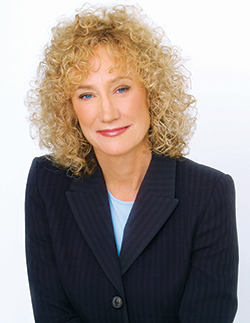 Diverted from a stroll to the Ave. by flames and sirens, Dorrit Bern spent her first night as a University of Washington student watching the ROTC building burn.
Diverted from a stroll to the Ave. by flames and sirens, Dorrit Bern spent her first night as a University of Washington student watching the ROTC building burn.
It should have caused a nice girl from Spokane to rethink her decision to come to Montlake, but it didn’t. The flames only reinforced it.
Not that Bern embraced arson as a tactic to protest the war in Vietnam. Rather, the fire was vivid — if horrific — proof that the UW was on the front line of the social and political revolution that swept the nation during the late 1960s.
“You name it,” says Bern. “Every issue, every protest you could think of was going on. I, too, felt I wanted to make a difference in the world, so it was very exciting.”
Today, Bern is chairman, president and CEO of Charming Shoppes, the parent company of the Lane Bryant, Fashion Bug and Catherines chains of women’s apparel stores. As a UW student, she was a passionate participant in the women’s movement and was determined to see women get a fair shake — especially in business.
“That’s really where my heart was — equal pay, equal rights, equal job opportunities for women,” she says. “That’s why I was a business major and wanted … to be successful in the business world. That was my passion.”
Bern, 56, graduated with a business administration degree in 1972. As her career progressed, her drive to succeed forced her to make a wrenching choice. A senior executive at Sears, she wanted badly to accept an offer from Charming Shoppes to become CEO, but was reluctant to ask her husband and children to move from their Chicago home to Philadelphia. So, for the last 11 years, she has lived and worked in Philly and flown home on weekends.
Growing up, all three of Bern’s sons excelled in sports, but between her commute and her frequent travel, Bern was forced to miss many important moments in their lives, “which I truly regret,” she says.
Yet spending more time away from her family than with it wasn’t the only downside to joining Charming Shoppes. The company was “broken” and plummeting toward bankruptcy. Still, Bern’s lifelong dream was to run a business. When asked during a job interview early in her career what her goals were, Bern boldly replied, “To become president of the company.” The interviewer laughed. Bern didn’t.
Her success at Sears — she executed the “Softer Side of Sears” campaign — led many companies to offer Bern jobs as their chief merchandiser, but only Charming Shoppes offered to make her chief executive.
“You hear from a lot of women that in order to be promoted and get ahead, you have to take the job nobody wants,” she says. “You have to take the risk.”
Acting quickly, Bern closed underperforming stores, pruned the work force, expanded product lines and revised the merchandising strategy. After 16 months, she’d turned the company around.
Revenues from the company’s more than 2,236 stores approached nearly $2.8 billion last year.
In the face of daunting personal and professional challenges, Bern persevered. “My philosophy is that we’ll always figure it out,” she says. “There isn’t any problem, there isn’t any situation, there isn’t any anything that is unsolvable. We as a team will figure it out.”
After graduating from the UW, Bern flirted with a career in professional golf. Introduced to the game when she was 5, she spent two years as an assistant pro at Sahalee Country Club before realizing her true passion — and a more rewarding future — lay in the fashion industry.
Even so, Bern’s sweet swing did come in handy once. While unrolling the “Softer Side of Sears” campaign, which emphasized products that appeal to women, Bern encountered opposition from male executives who chafed at surrendering floor space that had always belonged to hammers, mowers, spark plugs, etc. One executive flat out refused to cooperate with Bern even though she had the blessing of the company’s CEO.
“I had to get floor space,” recalls Bern. Rather than tattle, she challenged the man to a golf match with the winner claiming the disputed territory. Had he known the strength of Bern’s game, he might have thought twice about accepting the bet. But he didn’t. And he lost. Handily.
When Bern reflects on her four years at the UW, she appreciates what she learned in the classroom, but places even greater value on what she absorbed from the vibe of a diverse urban campus filled with people of different ethnic, economic and cultural backgrounds — “people who were going to become my customers,” says Bern.
“The majority of my [high school] classmates attended either Washington State or Eastern Washington,” she says. “I was looking for a broader personal experience than I felt I would get in Cheney or Pullman. The University of Washington,” says Bern, “did not disappoint me.”
The title holder
William Foley, ’74, Fidelity National Financial
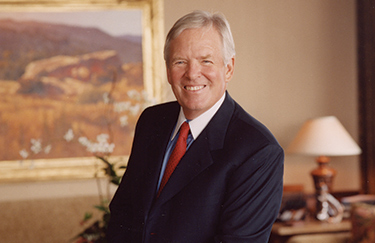 In 1974, William Foley was a freshly minted lawyer with a degree from the University of Washington. Today, he is chairman and CEO of Fidelity National Financial Inc., a real estate/banking services titan he built virtually from scratch.
In 1974, William Foley was a freshly minted lawyer with a degree from the University of Washington. Today, he is chairman and CEO of Fidelity National Financial Inc., a real estate/banking services titan he built virtually from scratch.
Based in Jacksonville, Fla., Fidelity National Financial posted revenues of $6.3 billion in 2005 while serving more than 7,800 financial institutions in more than 60 countries worldwide. Even Foley, who was unavailable for an interview, has expressed surprise at the numbers. “We never anticipated it would be this successful,” he said during a CNBC business news program.
A graduate of the U.S. Military Academy, Foley is disciplined, ambitious and a die-hard entrepreneur. “I’m my own worst enemy,” he told Forbes magazine. “I keep finding transactions to do.”
It all began modestly enough. After practicing real estate law in Phoenix from 1974–84, Foley led a leveraged buyout of a sleepy company called Fidelity National Title Insurance — and he’s been charging ahead ever since. Besides his corporate triumphs, he’s opened two California wineries, Foley Estates Vineyard and Winery, and LinCourt Vineyards, and earned recognition from Golf Digest as one of the top five executive golfers in the world.
Foley graduated from West Point in 1967. He then served as a captain in the U.S. Air Force, which sent him to Seattle to oversee defense contracts with Boeing. After his discharge, he earned an M.B.A. from Seattle University in 1970 before enrolling in law school at the UW.
Foley spotted the growth opportunities available in the title insurance industry — an unglamorous but essential part of the real estate industry — when others didn’t. “Through dozens of shrewd and complicated acquisitions and effective operational management, he led Fidelity to the top position in the title insurance industry,” reads his biography in Reference for Business. After taking the company public in 1987, Foley led Fidelity through an explosive growth spurt. “Every year our revenue would go up by 50 percent, 100 percent,” he told the Florida Times Union.
His strategy was to look for companies with ineffective managers who were missing opportunities to grow. Once Foley acquired them, the former cadet would quickly whip them into shape.
Yet not everything about Foley is spit and polish. Foley often comes to work in a golf shirt or Hawaiian shirt, making every day casual Friday for employees.
Foley’s boldest move came in 2000 when Fidelity acquired the second largest title insurance company in the country, Chicago Title, which instantly vaulted Fidelity from number four to number one. Over time, Fidelity diversified and now offers flood insurance, mortgage insurance, property/casualty service, appraisal services and home warranties. In 2003, Fidelity acquired ALLTEL Information Services, a large bank processing and mortgage services company.
Even as Foley was leading Fidelity’s aggressive expansion, his appetite for deal-making led him to join a group that gained control of CKE Restaurants Inc., then owner of the Carl’s Jr. chain. With Foley at the helm as chairman and CEO, the company soon began snapping up other regional fast-food chains, most notably Hardee’s.
In 2000, Foley stepped down as CEO of CKE and in 2005 resigned as chairman, citing other “pressing business and personal commitments.”
Like a general who knows he can’t win a war by himself, Foley trusts his subordinates and gives them much of the credit for his success. “I’m a very good delegator, so that’s one of the reasons the company has grown like it has,” he told the Santa Barbara News-Press. “I try and delegate to strong managers.”
Foley also credits his days at West Point with preparing him to succeed. “I really feel West Point helped take some raw assets and talent I had and honed them,” he told the Times Union. Last year, he announced a $15 million donation to the academy — the largest financial contribution in West Point’s 200-year history. The money will pay for a new indoor practice field for football and other sports.
Questar’s quarterback
Keith Rattie, ’76, Questar
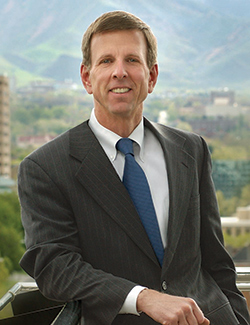 The memory makes Keith Rattie cringe — and smile.
The memory makes Keith Rattie cringe — and smile.
Orange shirt. Black tie. Brown sport coat. Bell-bottom pants. Platform shoes. Long hair.
Not exactly the look of a future energy executive. Just the best Rattie could manage when a recruiter from Standard Oil came to interview him for a possible scholarship.
“I didn’t have a suit,” he says. “I’d never even worn a tie. I had no idea how you tied one.”
Today, Rattie is the CEO and chairman of Questar Corp. Back in 1975 — when his hair tickled his shoulders and his clothes came from Sgt. Pepper’s closet — Rattie was starting his senior year as an electrical engineering student at the UW. Having racked up considerable debt putting himself through school, Rattie was thrilled when Standard Oil gave him a $1,000 scholarship and offered him a job at the company’s San Francisco headquarters after graduation — an offer he accepted.
“In the spirit of Jed Clampett, I thought California was the place I ought to be, and I loaded up my truck and moved,” says Rattie, 52.
And moved. And moved. And moved. By the time Questar hired him in 2002, he’d loaded up his truck 10 more times. “I’ve told my wife this is the last move four or five times now,” he says.
Based in Salt Lake City, Questar discovers, processes and distributes natural gas, mainly in the Rocky Mountain region. Rattie’s mandate when he arrived at Questar was to refocus the company from being a regional utility to being “a national player with a predominant focus on exploration and production.”
The move, which meant accepting greater risk in exchange for greater potential reward, is paying off. During Rattie’s tenure, revenues have climbed from $1.3 billion to $2.7 billion and the stock price has soared from $21 a share to nearly $80. “We’re one of the fastest growing natural gas producers in the U.S.,” he says.
Not bad for an Aberdeen boy who “didn’t have a clue” about what he wanted to do when he enrolled at the UW but never thought about going anywhere else. “Some folks have reasonable explanations for why they chose a particular university — mine was being a die-hard Husky football fan since age 6,” he says. “The thing I enjoyed most [about college] was Saturday afternoons in the fall at Husky Stadium.”
At times, Rattie’s career has involved frequent travel, but he always takes great pains to find a TV whenever the Dawgs are on the tube. He watched the 1991 UW-Nebraska game in Madras, India.
Rattie arrived at the UW during an era of social change and pondered pursuing politics. However, his fraternity brothers at Sigma Phi Epsilon talked him out of it after Rattie revealed a knack for math and science. They told him, “You’re always helping everybody else with their calculus and physics and chemistry, so what are you doing going after a degree in political science?”
Rattie eventually caved and entered the electrical engineering program. “I don’t think I ever thanked my fraternity brothers, but they probably changed my life for the better,” he says. “They got on me pretty good until I finally saw the light.”
Also deserving thanks, says Rattie, are a pair of his professors. Daniel Dell, then chair of electrical engineering, was responsible for passing his name along to Standard Oil. Fred Bergseth, a professor in the department, inspired his choice of specialties. “I credit him with getting me to decide to focus on electrical power,” he says. “He took the theory and made the connection to potential applications clear and compelling.”
At Standard Oil — which subsequently became Chevron — Rattie’s focus soon changed. Hired to design power systems for energy facilities, Rattie was quickly diverted into project management and ultimately went on to run an oil field and head up a global natural gas unit. Rattie spent 19 years at Standard Oil before joining the Coastal Corp., a natural gas exploration and production company, as senior vice president.
CEOs, says Rattie, are like the quarterback on a football team. They get too much credit for success and too much blame for failure. At Questar, Rattie strives to surround himself with top-notch employees, set a tone of responsibility at the top and immerse himself in the business.
While Rattie didn’t get as much use out of his electrical engineering degree as he anticipated, his four years at Montlake were far from wasted. After an adventurous freshman year — “We had a lot of fun, but in hindsight I was pretty immature” — Rattie began to grow up. “It was a period of time when you had to learn the quality of self-discipline,” he says.
In Rattie’s case, that meant trading rowdy nights at the frat house for bike rides to Loew Hall, where he would find an empty classroom, plop down his books and “study until the work was done.”
The University of Washington, says Rattie, is where he “learned how to learn.”
True to his roots
Steve Rogel, ’65, Weyerhaeuser
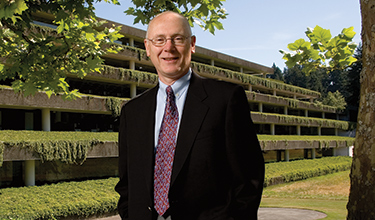 When Steve Rogel came to the University of Washington, he attended lecture classes that were five times the size of his senior class of 45 at Ritzville High School.
When Steve Rogel came to the University of Washington, he attended lecture classes that were five times the size of his senior class of 45 at Ritzville High School.
Three decades later, when Rogel was named president and CEO of the Weyerhaeuser Co., he took over a business that was nearly four times the size of the business he previously ran, Willamette Industries.
Looking back, Rogel believes that without the first experience, he may not have been ready for the second.
“Going off to the big city and seeing how people from the city differ from farm communities was a big learning experience and probably one of the bigger helps [in my career],” he says.
Besides, if Rogel hadn’t come to the city, who knows how long it would have been before he tasted pizza? “That’s something you didn’t get in the country,” he says.
Rogel, who graduated from the UW with a degree in chemical engineering in 1965, had been to Seattle only once prior to his enrollment at the UW. In Ritzville, a farm town an hour west of Spokane, most college-bound students, including Rogel’s sister, went to Washington State as a matter of course. “I had a hankering to do things a little differently than everyone and went off to the U,” he says.
One of Rogel’s most enduring UW memories is “how difficult the engineering routine was and for me to come up to speed,” he says. “I didn’t have the math and science depth and background that some of the city kids had, so I had to make up that ground.”
Rogel did, however, have a country boy’s acquaintance with self-reliance and hard work — at his father’s garage and car dealership as well as at nearby farms. “I consider growing up in a small town to be an advantage,” says Rogel, 63. “Responsibility comes earlier when you live in a community like that because of the expectations of the community.”
Rogel’s adjustment to college life on a mammoth campus was eased by joining a fraternity, Beta Theta Pi. “You had an instant group of people who were support around you,” he says. “Coming from a small town, that was helpful.”
Rogel also remembers eating lots of 19-cent Dick’s burgers (“That was all I could afford”), going to Husky football games (“You started getting ready about 8 in the morning”), and trips to the original Red Robin Tavern (“I was just there for the food”). Winking after his Red Robin quip, Rogel says he enjoyed himself in college, but at the same time, he never forgot why he was there.
An internship during his junior year with the St. Regis Paper Co. in Tacoma kindled Rogel’s interest in the forest products industry. It also led to a job with St. Regis when he graduated — and the realization that there was something that appealed to him more than chemical engineering. “My best abilities lay in working with people and managing people and things,” he says.
After jumping on the management track at St. Regis, Rogel’s next stop was Willamette Industries, where he rose to president and CEO before Weyerhaeuser hired him to lead the Federal Way-based company in 1997. “One of the things the board of directors of Weyerhaeuser asked of me … was to bring change,” he says.
Rogel, who has since added chairman to his original titles of president and CEO, got the ball rolling by acquiring McMillan Bloedel and TJ International. But those were just warmups for the main event: a protracted hostile takeover of his old company, Willamette Industries.
Yet even as Weyerhaeuser was growing via acquisitions (the company reported revenues of $22.6 billion in 2005), Rogel began shedding peripheral businesses to focus on the company’s traditional strengths — timber, wood products, real estate, and pulp and paper — and started building a leaner and more centralized management structure.
“Weyerhaeuser has a grand history and it had a really highly developed culture of ‘this is the way things are done at Weyerhaeuser,’ ” says Rogel. “That in itself can be very good, but in a climate where there’s tremendous change going on … it can be a problem because it inhibits your ability to change and adapt with the current business conditions.”
Those changes include going global. Weyerhaeuser is now growing trees in South America, where seedlings that would require 35 years to mature in the U.S. mature in 21 years. “You stick a tree in the ground,” says Rogel, “and you jump out of the way.”
License to Drill
Paul Van Wagenen, ’73, Pogo Producing
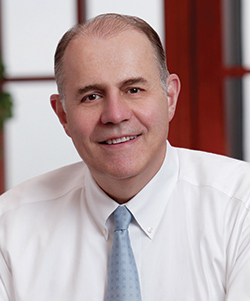 One summer in the Pacific Northwest sold Paul Van Wagenen on Seattle.
One summer in the Pacific Northwest sold Paul Van Wagenen on Seattle.
“I decided it was about as pretty a part of the country as I’d ever seen,” he says. “I’ve lived in lots of places, but the only time I shed a tear was when I left Seattle.”
First smitten with Seattle in 1968 during a stint at Fort Lewis in the Army Reserves, Van Wagenen returned two years later to earn a law degree at the University of Washington. “I picked the University of Washington because I figured I’d like to live [in Seattle],” he says.
That was before Exxon made him an offer he couldn’t refuse, launching him on a career in the energy industry that led to his current position as chairman, president and CEO of the Pogo Producing Co. Headquartered in Houston, Pogo engages in the exploration, development and production of oil and natural gas in the U.S. and around the world. Revenues topped $1.2 billion in 2005.
Most people in his position bring engineering or geoscience degrees to the table, says Van Wagenen, but it’s not unheard of for someone such as himself — an attorney with an undergraduate degree in political science — to run an oil and gas company. As a lawyer with Exxon and later as Pogo’s general counsel, Van Wagenen soaked up a thorough knowledge of the industry. If oil didn’t flow through his veins when he started, it does now.
“I enjoy the hunt for oil and natural gas,” says Van Wagenen. “When things are challenging, it’s fun, and when things are going well, it’s more fun yet.”
When he’s not in his office, Van Wagenen is often looking over the shoulder of one of the company’s geophysicists, peering at computerized seismic images and “deciding where oil and gas might be hiding in those squiggly lines,” he says. “I’m a novice at it, but I enjoy rubbing elbows with people who are really good at it.”
Van Wagenen, 60, was born in Provo, Utah, and grew up two blocks from the campus of Brigham Young University, where he earned his poli sci degree. But that was just a stepping stone to his ultimate goal: a law degree.
While Van Wagenen chose to study law at the UW because of its setting, he soon discovered something he appreciated almost as much — a diverse and stimulating campus. “It may not be the biggest liberal university,” he says, “but compared to Brigham Young, it was pretty liberal — all the way down to walking on the lawn, which they discouraged at Brigham Young. It was a treat to get to [the UW] and see people walk on it, study on it, sleep on it. It was comforting to know, somehow, that I could walk on the grass. So I did. In a very limited way, it was liberating.”
When Van Wagenen took the helm at Pogo 15 years ago, he was given a green light to chart a new course. Founded in 1970, Pogo was formed with the express purpose of acquiring licenses to drill for oil in newly opened fields in the Gulf of Mexico. Two decades later under Van Wagenen, Pogo became an international player, acquiring licenses to operate off the coast of Thailand, where it ultimately drilled 500 wells, erected 22 platforms and extracted a trillion cubic feet of oil and natural gas.
As smart as that move was, Van Wagenen didn’t balk when the market dictated dealing away the company’s Thailand licenses last year. “You can’t name your cattle,” he says. “You have to be willing to sell your assets if the price is right.”
Now, after using the $820 million it pocketed from selling its Thai assets to purchase Northrock Resources Ltd. of Canada, Pogo is looking to repeat its overseas success with newly acquired licenses to drill off the coasts of New Zealand and Vietnam. “Early on, they look very exciting to us,” he says.
Among Van Wagenen’s fondest memories of his UW days is the constitutional law class he took from Charlie Corker. “He would peer at you over his reading glasses, puff on his unlit pipe and look into your soul and he could tell if you were prepared or just bluffing,” says Van Wagenen. “His reverence for the U.S. Constitution as a basis for American democracy was moving.”
Husky football also left a lasting impression. In 1984, Van Wagenen’s two alma maters, Brigham Young and the University of Washington, jockeyed for the top spot in the national rankings, with BYU finishing number one and the UW number two. “It was an exciting time for me,” he says. “I was very pleased the Huskies could [win a title] in 1991.”